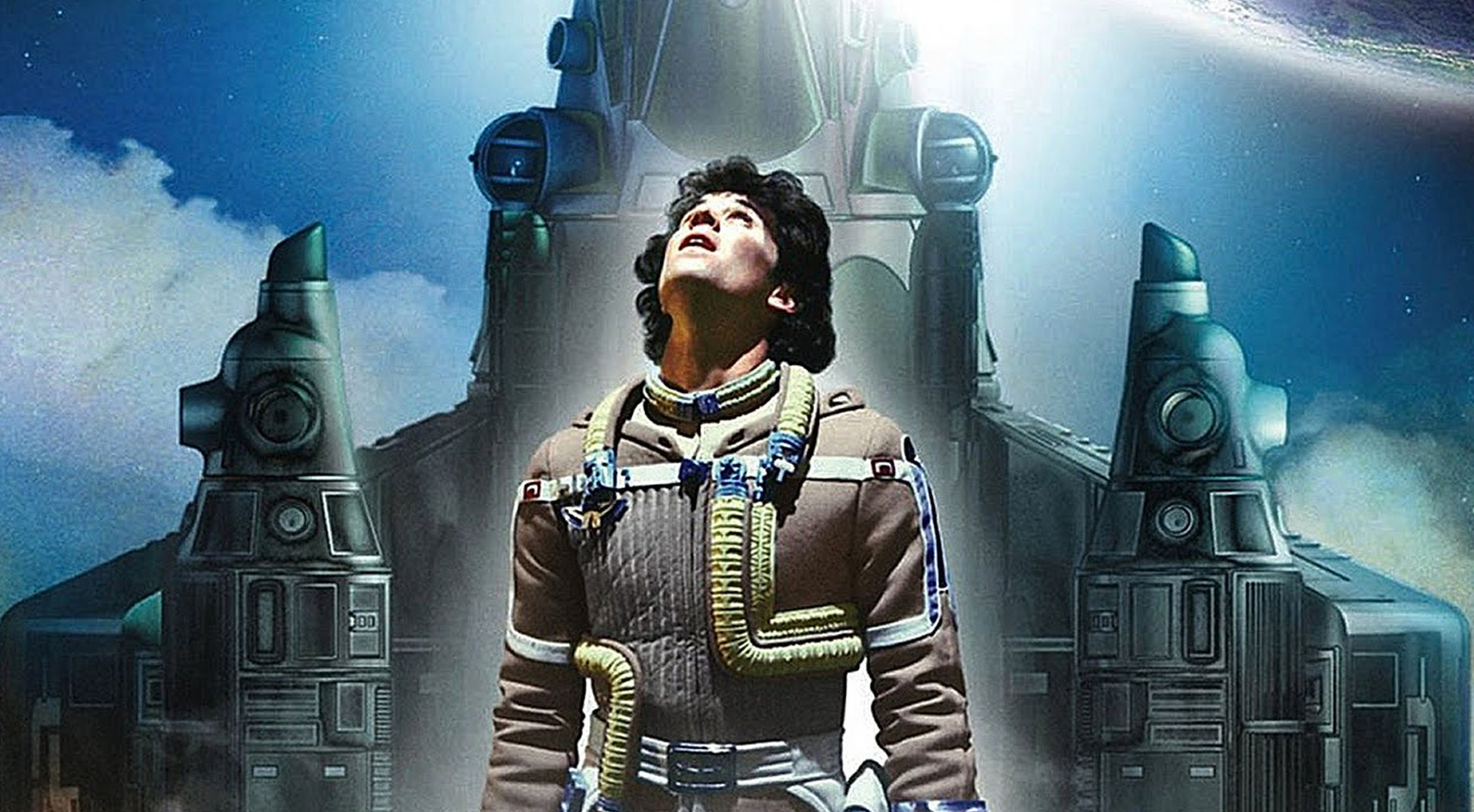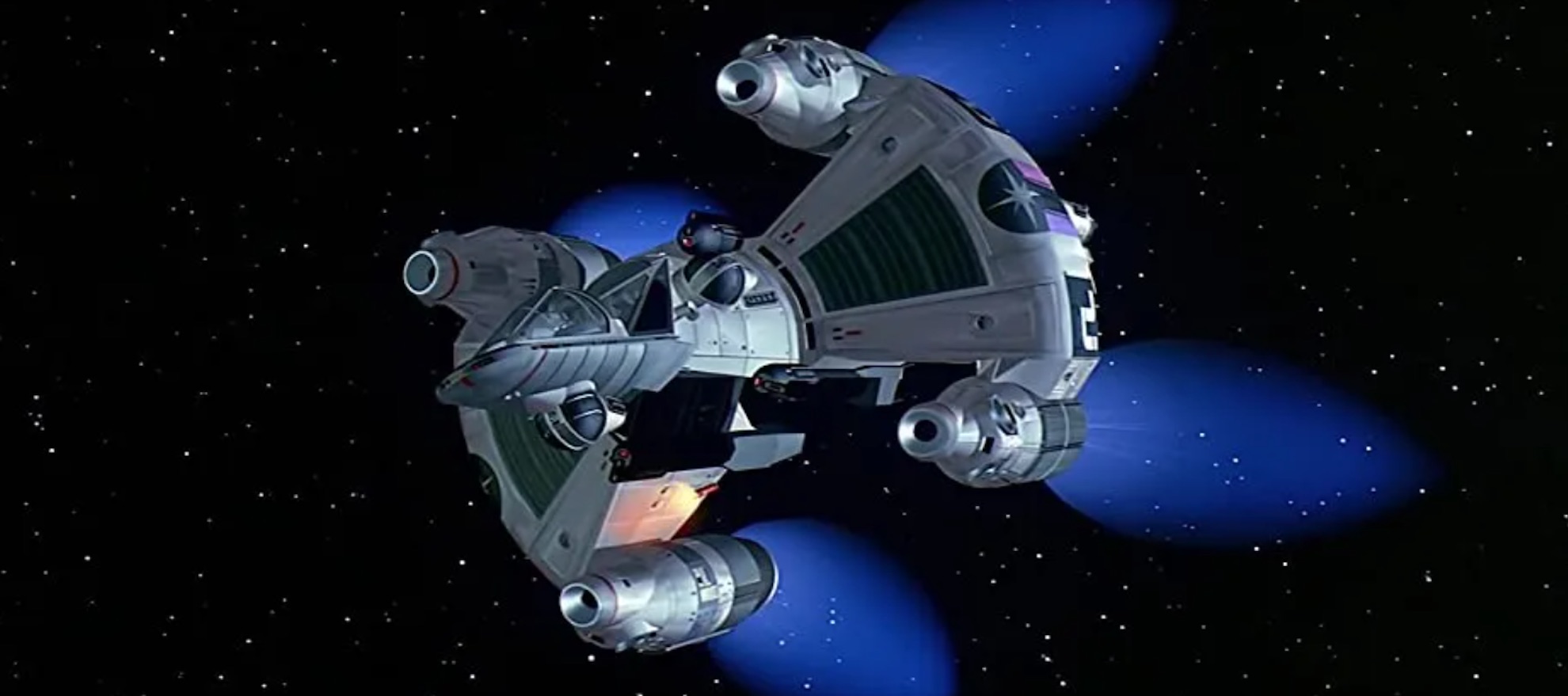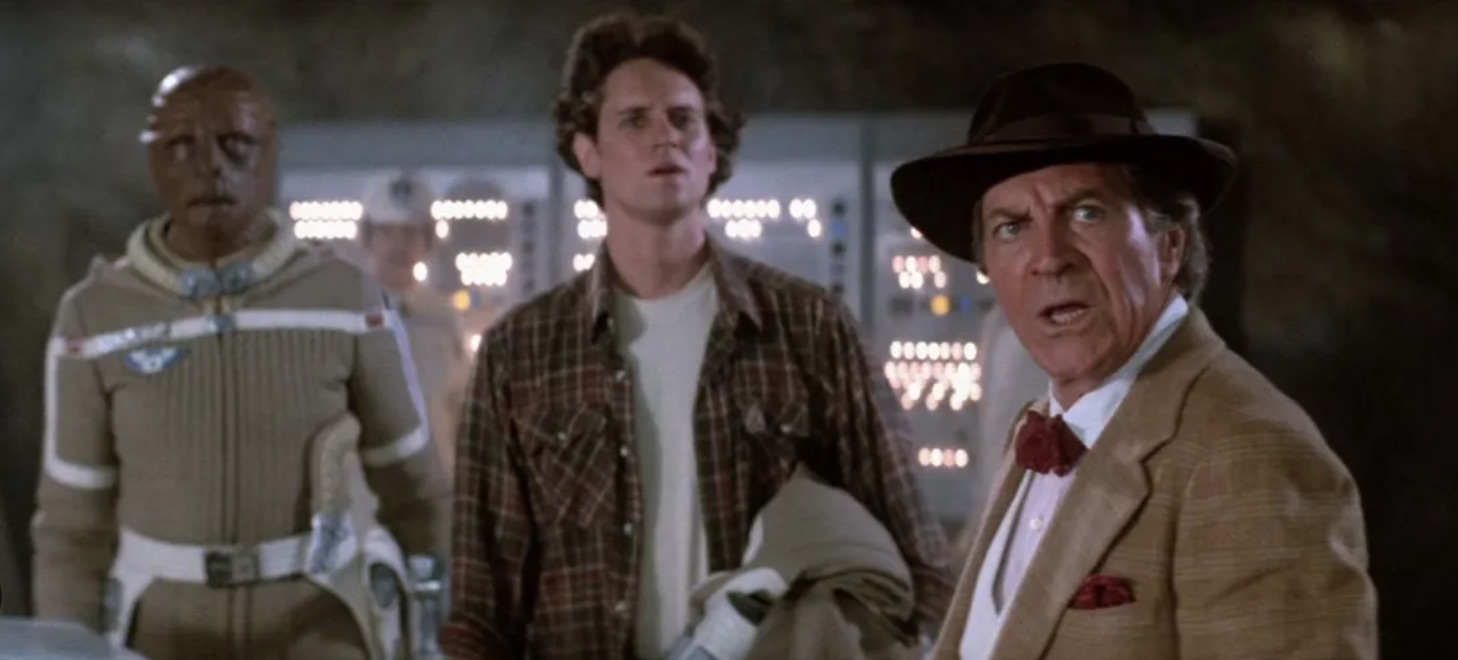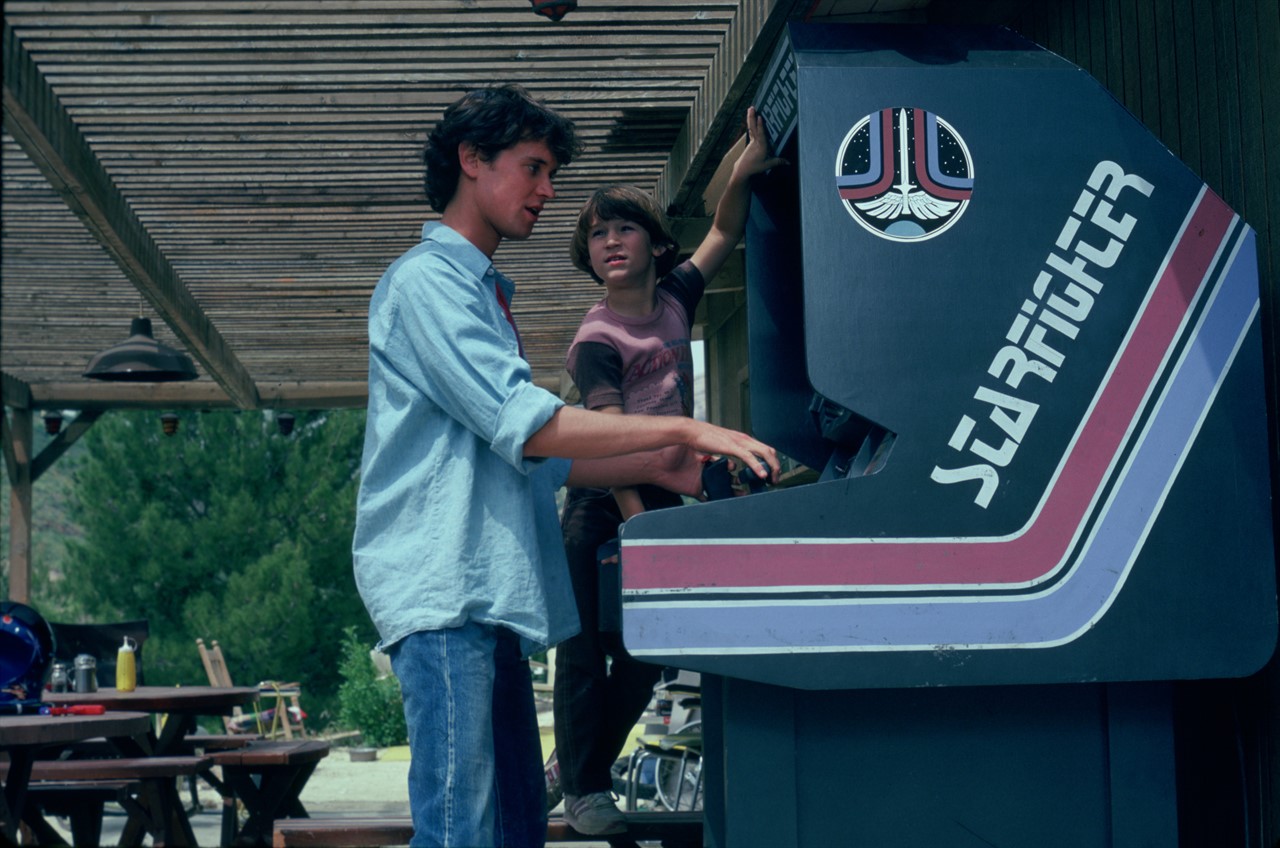
"Greetings Starfighter, you have been recruited by the Star League to defend the frontier against Xur and the Ko-Dan armada. Get ready! Prepare for blast off!"
The summer of 1984 was a banner year for Hollywood, with a bounty of A-list releases that included such iconic titles as "Ghostbusters," "Gremlins," "Star Trek III: The Search For Spock," "Conan the Destroyer," "Indiana Jones and the Temple of Doom," "The Karate Kid," "Purple Rain," "Red Dawn," "The Company of Wolves." "The Neverending Story," and "Revenge of the Nerds."
Added to that esteemed list was a little film called "The Last Starfighter," which was launched by Universal Pictures on July 13,1984. Directed by Nick Castle, the filmmaker who was the first to don the modified Shatner mask to play "The Shape" in John Carpenter's "Halloween," this uplifting sci-fi fantasy feature was a moderate success, pulling in $29 million off of a $15 million budget. It faced fierce box office competition and didn't exactly set the planet on fire in terms of performance, but it's fondly remembered by millions who recall its purity, spirit, and heart.
"I'd done my first movie called "Tag: The Assassination Game" and my manager came across this project at Lorimar," Castle tells Space.com. "I read the script and thought it needed a lot of work but it had a good premise. I talked to Gary Adelson, the producer on the show, and very quickly we got involved. Then Jonathan came out from New York and we started figuring out how to navigate this project.
"When you have that premise of a boy who goes into space and becomes a hero, you run into Spielberg and Lucas almost at every turn. Lorimar had already brought in Digital Productions to do the new visual effects and Gary was excited they were giving it to him at a certain cost that made it affordable to go ahead and make the movie."
Based on a screenplay by Jonathan Betuel, "The Last Starfighter" is the inspiring tale of a small town kid named Alex Rogan (Lance Guest) living at the Starlite Starbrite Trailer Court who dreams of leaving his dull life and making his mark in the world. A record-breaking wiz at the park's "Starfighter" arcade game, little does Alex know that this innocent digital amusement is really a recruiting tool for a slick interstellar huckster name Centauri (Robert Preston) who arrives in a Star Car to offer him a chance to help the Rylans defeat the evil Ko-Dan fleet in some remote solar system. Alex reluctantly leaves his sweetheart Maggie (Catherine Mary Stewart) behind to embark on a voyage to the planet Rylos where he's briefed on the losing battle.
Once enlisted in the Rylan space corp, Alex is paired up with a reptilian alien navigator named Grig (Dan O’Herlihy) after all the other recruited pilots are killed to help helm an advanced space fighter called a Gunstar, the same craft featured in the "Starfighter" game back home.
When all hope seems lost, Alex and Grig unleash the ship's dizzying Death Blossom weapon to vanquish the Ko-Dan armada and return to Earth triumphant to whisk Maggie off into the stars as the trailer court's neon sign blinks farewell.
"One of my early ideas was to set it in a trailer park, to isolate the main character to make his life more difficult than if he was in the suburbs. There was a kind of Capraesque feel to what I was thinking about and I drew on those old '40s films with endearing characters going through a trial. We got lucky with the cast. The chemistry of the whole thing wound up making sense, with two handsome leads without being over the top. And talk about being a trooper, Dan had to be in that alien mask that was stuck to him with some kind of glue. I remember him talking about manipulating the mask in front of a mirror so he could see how much character he could give it."

Its CGI effects might seem primitive by today’s standards but only 1982's "Tron" had utilized anywhere near this amount of pixilated magic. "The Last Starfighter" was a pioneering step in the advancement of integrated computer graphics, accomplished by a small crew at Digital Productions using a Cray X-MP supercomputer.
Backed by the expertise of distinguished production designer Ron Cobb ("Alien," "Raiders of the Lost Ark," "Aliens") a gorgeous orchestral score by composer Craig Safan and deft direction from Nick Castle, it has become a true cult classic, especially after last year's beautiful 4K UHD remaster from Arrow Video.
"A lot of the design of the picture is from Ron Cobb," Castle explains regarding the revolutionary digital effects. "A great production designer, a great artist and a great human being. We lost him two young and he was a dear friend of mine. Ron was like a second director on this picture. He was the one who knew science fiction. Essentially this was a big gamble on the studio's part.
"This hadn’t been done to this extent at all. There'd been some practice work done to make something look like a digital ship. But to maneuver it and to do it within scenes, it was all research and development as we were making the movie. It took almost another year after we’d finished principal photography to do it. I was there pretty much every day, signing off on shots and working with Ron and the visual effects team. Everything was being invented for digital moviemaking at that place at that time. It was interesting and always fraught with danger."

The legendary Robert Preston of "The Music Man" fame delivers a pitch-perfect performance as Centauri. This was Preston’s last film appearance as he passed away just three years after the theatrical release.
"You'd expect someone like that would be fun to work," says Castle. "He's an old pro and he enjoys being in front of the camera and has this certain knack. The idea for him came from Jonathan, the writer. He came up to me when we were casting and said, "Nick, listen to this … The Music Man in outer space." That’s one of the great ideas of all times. We'd already written him as a huckster and it all worked out perfect. Robert was a delight, and it was a lot of fun."
Many fans of the the nostalgic film always point out the breathtaking music that elevates every scene in this sparkling Hollywood gem.
"I think it's a wonderful score and certainly one of Craig’s best," Castle adds. "It really holds up against all the other space opera stuff that's been put out before and since. It’s just a wonderful, catchy theme and Craig knew how to play a theme both as adventure and love story and as wistful and not make it repetitive. Over the years he's done orchestral suites of 'The Last Starfighter' music in different countries and people love it. I think he really did a great job."

It might seem out of style in this jaded divisive world, but the film is a effervescent tonic for the soul and a refreshing leap back to an optimistic age of moviemaking that we could all use more of. Don't let today's concentration on dystopian gloom deter you. It's perfectly acceptable to indulge in a little old-fashioned Hollywood fun and "The Last Starfighter" still shines brightly on its 40th anniversary.







